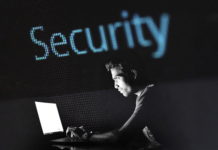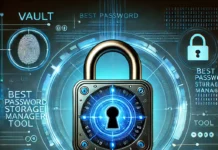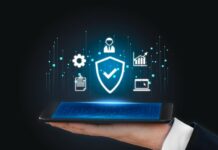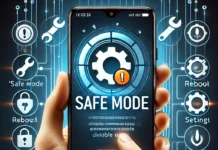 Over the years, the Mac user base increased. Different versions were released over time, and improvements were made from previous versions to make the Mac operating system more appealing. Nowadays, Apple’s Mac computers use various versions, with macOS Catalina Running on about 53% of the Apple computers in June 2020. Since Apple became so popular as a brand, it isn’t a surprise that macOS suddenly gained more traction.
Over the years, the Mac user base increased. Different versions were released over time, and improvements were made from previous versions to make the Mac operating system more appealing. Nowadays, Apple’s Mac computers use various versions, with macOS Catalina Running on about 53% of the Apple computers in June 2020. Since Apple became so popular as a brand, it isn’t a surprise that macOS suddenly gained more traction.
While this is a good thing, it also gives cybercriminals and hackers more opportunities to take advantage of you. As such, they will try to infiltrate your device and put you at risk of having your private information stolen. To avoid such an unwanted event, you should start taking measures to protect your macOS.
Some of these measures were not exactly popular in the early days of macOS but have become absolutely necessary because of today’s security challenges. They include using a good VPN solution, keeping your macOS up to date, using a secured connection always, installing only trusted software, and refraining from sharing your MacBook. Read on to see how these top-tested strategies will help keep your Mac secured and away from prying eyes.
1. Encrypt Your Network Information
If you have a Mac laptop, you might enjoy taking the device with you to different places for work, studies, or just personal use. So, when you go to a local park or a bar, you may have to use a public network. This comes with a huge risk, though.
Using a MacBook on a public network is dangerous because the network is not secured. Without the proper encryption, this will allow cybercriminals to see everything you do, using methods like man-in-the-middle attacks or packet sniffing.
Consequently, you might lose a lot of private data. All of the sensitive information will be taken by someone who will most likely use it in malicious ways.
Luckily, you can keep your data away from prying eyes by using a Mac VPN. With a VPN, your online traffic is encrypted, and your IP address is hidden, keeping you away from cybercriminals.
2. Use HTTPS Instead of HTTP
Many sites will use the HTTPS protocol to maintain your safety and protect you from hackers. However, sometimes, you may require information that can only be found on a page with an HTTP protocol. HTTP is not a secured connection, while in HTTPS, the “S” at the end stands for “Secure.” When using HTTP, cybercriminals may be able to see your data.
Using an unsecured connection could put your data at high risk. Hackers may be able to steal your credit card information, passwords, and other information you may have saved on your browser.
This can be prevented by using HTTPS instead. So, you should check the URL bars all the time so you don’t end up using an HTTP protocol. It’s especially important when you’re doing online shopping or banking.
3. Refrain from Sharing Your Mac
People very commonly share their laptops with other individuals. But when you share your device, you might give an unknown person the chance to steal your information.
Consequently, you might have passwords, credit card data, and other similar things stolen and used by the person to perform criminal acts. You will not only lose your accounts, but you may also face legal challenges due to someone else’s bad behavior.
Never share your MacOS device with anyone else, especially if you don’t know them. Still, it’s always best to set a private browsing mode if you want to do it. Also, if you must give the Mac device to a technician, make sure it’s a trusted specialist.
4. Be Careful When Installing Software
While browsing the Internet, you might come across programs, applications, or games that spark your interest, or you may suddenly see a pop-up window telling you to download an app. Sometimes, Apple itself will have products that they advertise, and they always say that their programs are free of viruses. This is not always the case. Downloading programs you don’t know anything about could contaminate your Mac with viruses. Even the most harmless-looking Apple program may unknowingly contain a virus, and without an antivirus, things can get worse.
On top of affecting your entire system, viruses also give hackers the opportunity to steal your data or even destroy it.
Avoid this by having a quality antivirus installed so malware is removed as soon as possible. Also, you should never install any random program on your laptop. Only use accredited and approved programs.
5. Always Update your OS
Apple constantly brings updates to improve its system. This fixes any potential loopholes that might expose someone’s system to a cybercriminal. Nevertheless, there are new hacks created all the time. So, without updating your OS, this will put your computer at risk.
A hacker will be able to access your system as it’s not secure enough, and your data could reach the wrong hands.
Make sure to update your Mac OS whenever new updates are available. The new features and security fixes will make sure your laptop will not be affected by viruses and data breaches.
Conclusion
If you’re a Mac user in 2021, it’s important to maintain your cybersecurity. Keep your Mac safe by using a VPN, upgrading your OS, having an antivirus installed, using a secured protocol, and not sharing your laptop.
Image Credit: Unsplash

















